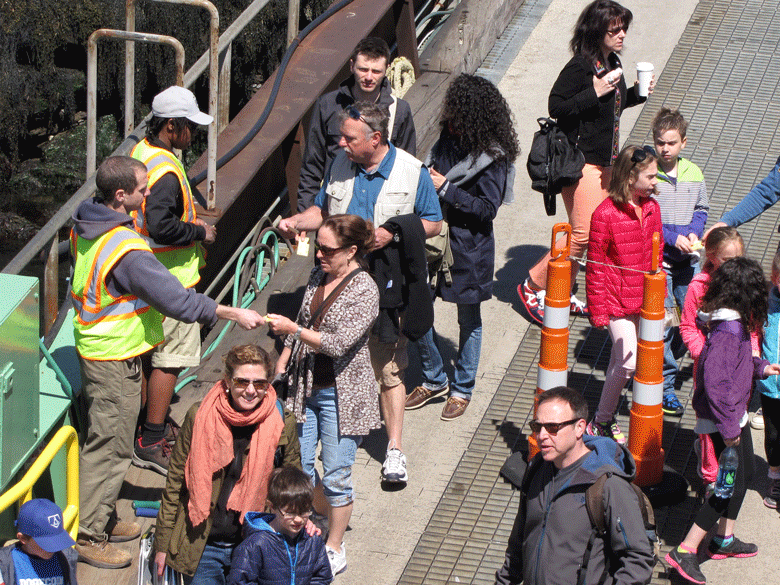The people who live on Maine’s 15 unbridged, year-round islands are inspiring and a model of resilience. Despite the many logistical and resource-based challenges they experience from living separated from the mainland, they find solutions through cooperation and pure genius.
Perhaps no other topic highlights this better than island transportation.
At Island Institute, it’s impossible to avoid thinking about island transportation. My own transportation history goes back to a decades-long career as a transportation professional, including seven years as a public school bus driver. So naturally, I was happy to take on island transportation in my role.
I am always keeping an eye out for what’s happening on the water or in the air.
My day-to-day island transportation work means I am always keeping an eye out for what’s happening on the water or in the air. On any given day, I engage in a wide variety of activities that support island transportation needs. From communicating about our comprehensive, first-of-its kind study of the Maine State Ferry Service (MSFS), to joining the new MSFS manager to meet with residents of Matinicus, helping Frenchboro secure federal approval and funding for harbor dredging, and connecting Matinicus with experts to help select a name for their newest vessel, the Charles Norman Shay, honoring a Penobscot tribal elder and decorated World War II Veteran—each day is different.

On a quarterly basis, I attend regular meetings of the MSFS Advisory Board. Created by statute and made up of representatives from islands, the board informs the state’s budget, operations, and policy decisions related to the six islands they serve: Frenchboro, Islesboro, Matinicus, North Haven, Swan’s Island, and Vinalhaven. The board is a key link between islands and the state ferry service, which transported 900,000 passengers in 2021.
Currently, the board is reviewing proposed changes to the state ferry service tariff, which guides ferry service policies, including rates. MSFS Advisory Board meetings are open to the public. Information about the board, including meeting minutes, can be found on the MSFS website.
While the advisory board is an important resource, it doesn’t cover all islands. At the start of the pandemic, Island Institute began hosting a group of all island transportation providers to create an opportunity for shared learning and use Island Institute’s advocacy and legislative capacity to support needs at the state, regional, and national level.
For the last year I have facilitated these meetings, which include a wide variety of small boat, ferry, and bush plane providers serving all 15 unbridged, year-round islands in Maine. The largest of those operators is Casco Bay Lines, a nonprofit that serves the Casco Bay islands, transporting more than one million passengers every year.
Every island is unique, as is every transportation provider, but they all face similar issues, including those related to the difficulty finding staff, increased weather-related challenges, mainland parking limitations, intense seasonal demand, and the increased cost of fuel and maintenance.
Across all providers, these costs must be balanced through new revenue sources, which in many cases means higher ticket prices. This past summer also saw a decrease in demand as compared to the previous summer, as the post-pandemic island travel rush slowed.
As we look toward the future, we have many changes ahead. There is still much more work to be done to improve the cost, quality, and reliability of island transportation—especially as climate change transforms marine and air transportation conditions in the Gulf of Maine.
We are seeing stronger wind, longer fog events, more intense storms, and bigger waves than in the past, which significantly impacts the ability of boats and planes to serve our islands. Additionally, as technology advances, we will likely see a wider-spread transition away from 100% fossil fuel-powered engines, as we are seeing with the new ferries coming online with MSFS and Casco Bay Lines. For MSFS, Islesboro’s George Mitchell will be a hybrid vessel. For Casco Bay Lines, Machigonne II, a 164-passenger hybrid will serve Peaks Island.
Alex Zipparo is a community development officer with Island Institute, publisher of The Working Waterfront, serving in the Center for Sustainable Communities.





